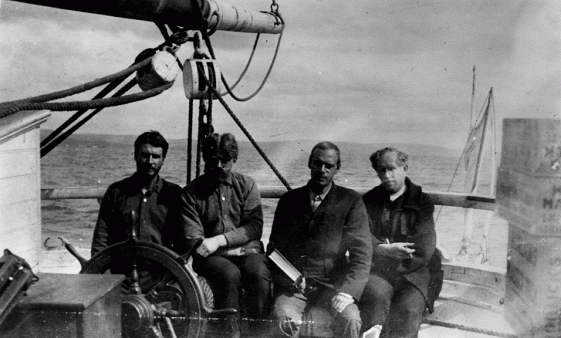Film Review: Against the Ice
15 May 2022
By Max Modell
Man and dog, a love story that spans across time. Few things are as comforting as having a dog by your side, a protector and a best friend. Movie execs have caught onto this, ruling the box office and stealing audience hearts with adorable dog movies like Marley and Me, Lady and the Tramp, Turner and Hootch, and this year’s Dog. These films make you chuckle and tug on the heart strings. Cue the sappy music, grab a sharer bag of popcorn, and settle in for a movie night cuddled up with your pooch.
Against the Ice is a dog movie, but it’s not a wholesome dog movie. In fact, if you’re a dog lover, STAY AWAY, this film is not for you.
Beginning in 1909, the film follows Danish explorer Captain Ejnar Mikkelsen (Nikolaj Coster-Waldau) as he set out on a perilous expedition across the ice to recover the papers of an ill-fated previous expedition to disprove the existence of the Peary Channel and invalidate the United States’ claim to Eastern Greenland, that is actually attached to the rest of Greenland and therefore part of the Kingdom of Denmark. After an initial unsuccessful attempt, the Captain is joined on his gruelling journey by inexperienced engineer Iver Iversen (Joe Cole), the only volunteer, and an ever dwindling pack of sledge-dogs. As you can imagine, things don’t quite go to plan.
The appeal of the Artic survival drama is obvious, the ultimate plight of man vs nature, full of opportunities for tension and bone-chilling drama. Then there is the fact this is based on a true story, adding to the raw brutality with the constant reminder that this actually happened. Yet, despite all this opportunity, the final film is cold and disengaging, with a pedestrian script that leaves the film feeling as long as the expedition it chronicles.
The story is told using periodical markers, day 1, day 84, day 164, etc, that ultimately grow repetitive. The formula is day x title card, establishing shot of travelling, something dangerous or unpleasant happens, the Captain and Iver find a way to overcome the obstacle, but now everything is a little bit worse, time jump to the next event, repeat. The result is a lot of peril but with very little tension.
The film is not a complete loss, the performances are solid and it contains entertaining set pieces, especially those involving a polar bear. Plus, it was a good, if basic, introduction to the history of Arctic territory disputes that I knew nothing about going in.
Perhaps, more interesting than the film itself, is the oddity that film about disputed Danish territory, made by Danish filmmaker, is in the English language. This was clearly a pragmatic decision, to facilitate a larger budget and potential audience, to allow the filmmakers to achieve the spectacle of the story. Yet, this decision sat uncomfortably with the subject matter, creating an internationalist feeling to a distinctly Danish story that is accentuated by the Scandinavian crew joking about like working-class Brits with various regional accents. Ultimately, this lack of specificity flattens the film in an attempt to make it palatable for global audience, removing all sense of identity.
Against the Ice is the epitome of a kinda alright movie. It’s not especially good or especially bad. If you’re a hard-core survival movie fanatic or are Danish and dig a story of national pride, you’ll probably get something out of it. But for most people, I’d recommend giving this one a miss.
Maxwell Modell is a PhD student at Cardiff University’s School of Journalism, Media and Culture studying the journalistic potential of news podcasts.
- From the Floe Edge: Visualising Sea Ice in Kinngait, Nunavut
- Bridging Knowledge and Action: A Polish-Norwegian Perspective on Arctic Science-Policy Collaboration
- Unpacking the Motivation Behind Wintering at Polar Stations
- Working the Ocean’s White Gold: A Nutshell History of a Living Bering Strait Tradition
- Political Participation in the Arctic: Who is heard, when, and how?